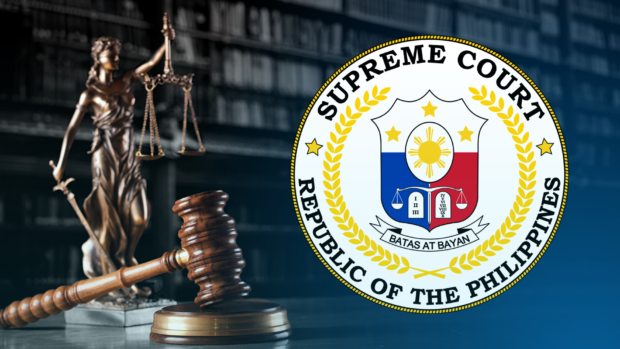
SUPREME COURT OF THE PHILIPPINES / STOCK
MANILA, Philippines — A former Supreme Court justice has urged the quick amendment of the 1987 Constitution due to the fact that the current basic law is vague on certain procedures that should be followed.
Retired associate justice Vicente Mendoza told the House of Representatives’ Committee on constitutional amendments on Thursday that Article XVII of the 1987 Constitution does not explicitly state how the constitution would be changed.
Under the said Article, amendments may be coursed through a three-fourths vote of all of Congress’ members, or through a constitutional convention. However, it is not stated whether the House and the Senate should vote separately or if Congress would act as a constituent assembly or if members of the constitutional convention would be elected.
“Why is it very important to amend the amendment clause of Article XVII? It is very important because the amendment clause is the safety bulb for the expression of public opinion. You make that ambiguous, you make it difficult for people to amend the constitution, or easy for the people to amend the constitution because it’s all ambiguous, it lacks the details,” Mendoza said.
“What do you have? You might have a revolution. At the risk of descending to pedantry, let me say that one of the essential paths of a constitution is that there must be an amendment clause as a safety valve for the expression of violent opinions,” he added.
The former magistrate told committee chairperson and Cagayan 2nd District Rep. Rufus Rodriguez that he is not exaggerating because this seemingly minor matter can cause discord.
“I’m not exaggerating Mr. Chairman and members of the committee when I say that the lack of an amendment clause can be the cause of a revolution, all because people are not given an outlet to express their desires, so that’s how important (the) Article XVII amendment should be considered,” he added.
The said committee tackled several bills seeking to amend the 1987 Constitution, like the establishment of a constitutional convention, changes to term limits, economic provisions, and other aspects.
Most of the resource persons present have raised opposition to the proposals, with constitutionalist and lawyer Christian Monsod saying that amending the 1987 Constitution just because of the prevalence of political dynasties is a lame excuse, as the legislative could have crafted a bill against it already.
READ: Monsod tells congressmen: Political dynasty a ‘lame excuse’ to amend 1987 Constitution
Former Bayan Muna lawmaker Neri Colmenares also asked why the constitution would be amended just to allow foreign direct investments (FDIs) and foreign ownership of business and lands when other Asian countries managed to progress without the need for huge FDIs.
READ: Colmenares: Amending Constitution won’t eradicate poverty or quash corruption
While Mendoza was amenable to amending the constitution due to these reasons, he raised concerns about giving equal rights to foreigners in terms of owning land, businesses, and resources.
“In 1947, the country gave the Americans parity rights. They were given the euphemism ‘equal rights’. Parity rights gave Americans and corporations owned by them the right to the disposition, exploration, development, and exploitation of our natural resources, and the operation of public utilities,” he said.
“By this resolution […] we make it easier to grant parity rights not only to Americans but to foreigners in general, make it easier than the parity rights of 1947. Why? Same privilege that we gave to Americans or even more. Why? Because by these resolutions, you will simply have a law to be submitted to Congress which does not have to be submitted for ratification,” he added.

